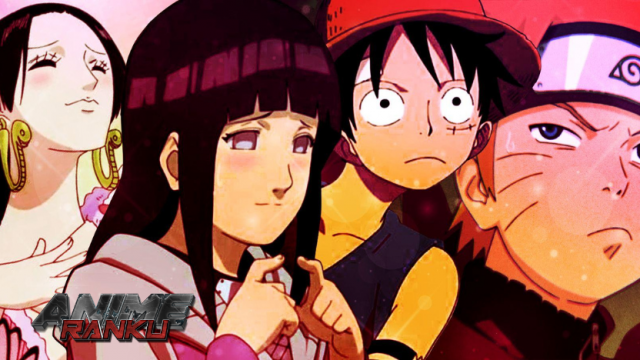Shonen anime is well-known for a variety of reasons, including its uplifting themes of courage, friendship, and perseverance, as well as its PG-13 action sequences, as seen in the original “Big Three” and newer titles such as Demon Slayer and My Hero Academia. On a more personal level, shonen heroes are all the same: optimistic, proactive, friendly – and terrible at romance.
Many typical shonen male leads, with the exception of shojo-style shonen like Horimiya and Shikimori’s Not Just a Cutie, are inept at matters of the heart for a variety of reasons. When it comes to girls, Naruto Uzumaki, Monkey D. Luffy, Izuku Midoriya, and Natsu Dragneel are either unlucky or completely clueless – but when done correctly, this actually deepens the narrative significantly.
When Shonen Male Leads Shouldn’t Be Romantic

There are no absolute rules on how shonen protagonists should handle romance. There are some general trends though, and the world of shonen has built-in reasons for its male leads to be weak in this area. Having a romantically dense or clueless MC can work wonders for the narrative, particularly for humor’s sake. Anime such as One Piece and Welcome to Demon School! Iruma-kun both exasperate and amuse viewers with how clueless their respective male leads are, even when attractive girls throw themselves at them.
It fits One Piece’s tone and Luffy’s personality for him to be a total ahodere, generally failing to recognize Boa Hancock’s amorous feelings for him. Similarly, the lovable, innocent Iruma Suzuki simply cannot tell that Azazel Ameri is interested in him, and that’s actually the core of their relationship. Iruma is a total outsider at the Babyls school for demons, so of course he’s out of his depth when a girl like Ameri shows interest in him. She is alien to him in more ways than one.
Additionally, some shonen authors expressly don’t want their male leads to have a serious love story; it would be a needless distraction in certain franchises. It’s a matter of what the narrative needs (and doesn’t need) for its themes and entertainment factor, and romance shouldn’t be thrown in just because. Author Eiichiro Oda said as much about his famous protagonist, hence Luffy’s total lack of romance. In fact, One Piece has little on-screen romance, with the few actual love stories just being mentioned in passing to flesh out a character arc or flashback. Simply put, there isn’t room in Luffy’s adventure for pursuing true love, so it’s left out.
Viewers Can Relate to Romantically Dense Shonen Male Leads

Most shonen manga and anime are written with young males in mind, so the protagonists are designed accordingly in many ways — including their love lives or lack thereof. A lead of any age, sex or gender identity will have relatable flaws for viewers to identify with, including the universal struggle to find true love. It never comes easily for anyone, so in shonen, the “main” romantic paradigm is a boy having tough luck with girls.
There are exceptions of course, but the default scenario assumes that shonen fans are boys who know what it’s like to strike out with girls, or to be too afraid or insecure to ask them out or say “I like you.” So, whenever shonen leads do find time for love, they’re bad at it so viewers can relate. If someone like Naruto, Luffy or Goku was a total ladies’ man, young male consumers might actually resent them rather than cheer them on.
Another consideration is the contrast of barriers to finding true love. True romances involve both internal and external barriers that keep the two main lovers apart, such as social class differences, physical distances, and so on. A classic example is Romeo and Juliet, who belonged to feuding families and thus had to keep their forbidden love hidden. In a true romance story, such concerns may dominate the plot, but shonen anime stories have other concerns.
At best, the male lead’s love life is complicated by internal issues, such as being a clueless ahodere or a foolish bakadere in general. There is no Montague vs. Capulet feud separating Hinata Hyuga and Naruto Uzumaki; that is not the type of conflict that Naruto’s world and narrative are about. Externally, they are both preoccupied with shonen-style ninja adventures and battles, so their struggle to become lovers is entirely personal.
It’s not the villainous Akatsuki or even a romantic rival keeping Naruto and Hinata apart — rather, it’s their own problems. Naruto’s romantic struggle as a bakadere is substantial but also purely personal, so it doesn’t come at the cost of warping the entire anime’s plot. That’s how shonen-style romance typically plays out.















Leave a Reply